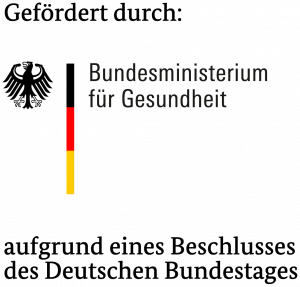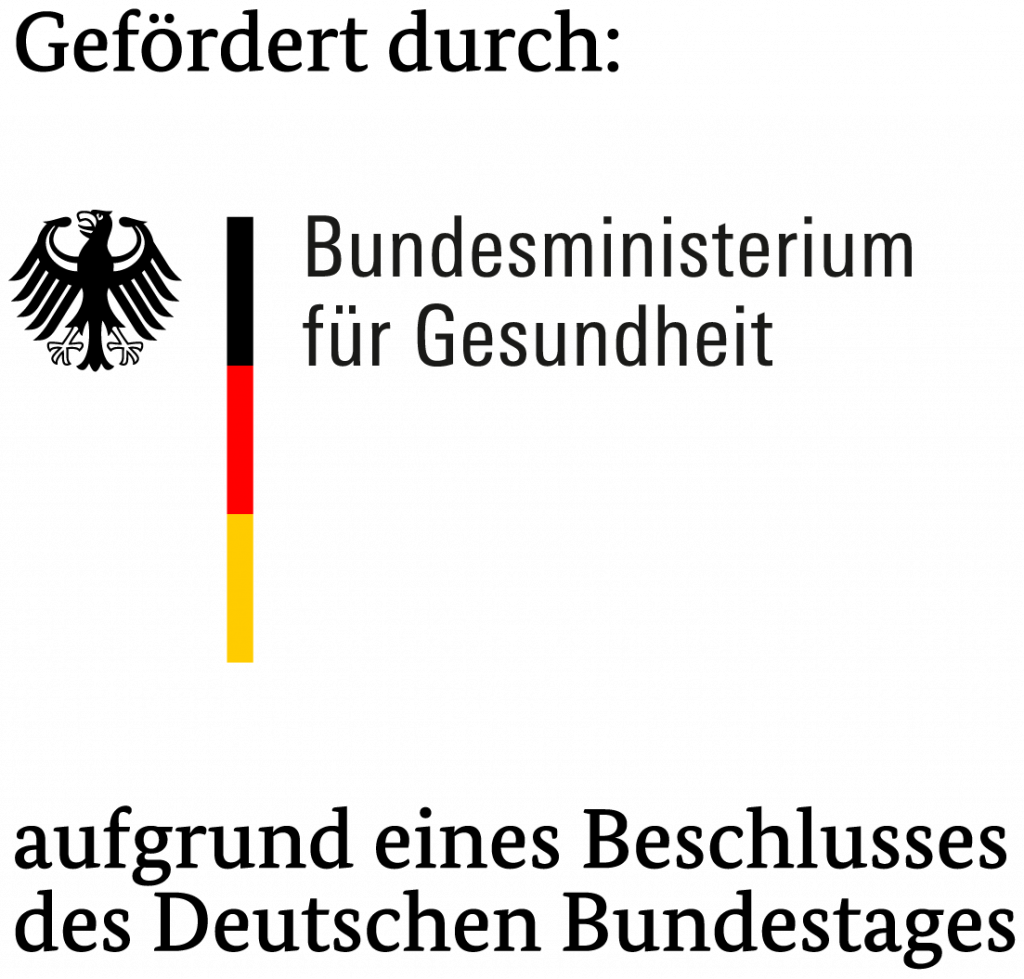Welcome
The ELSA Study: Experiences and Living Conditions of Unintended Pregnant Women - Counseling and Care Services.
© www.MUVS.org, Wien; Photographer: Christina Lag-Schröckenstein.
Möchten Sie an einer unserer Befragungen teilnehmen?
Hier können Sie mit uns Kontakt aufnehmen:
Sie haben eine Schwangerschaft abgebrochen und wollen den
Online-Fragebogen ausfüllen: http://elsa-studie.de/kontakt_fragebogen
Sie haben eine Schwangerschaft abgebrochen oder als Mann Erfahrungen
mit Schwangerschaftsabbruch gemacht und wären bereit, an einem anonymen
Interview teilzunehmen:
Die Befragung ist leider geschlossen und eine Teilnahme nicht mehr
möglich.
BEFRAGUNG
Im November 2021 starten wir mit der repräsentativen Online-Befragung von Frauen im Rahmen der ELSA-Studie. Der Fragebogen liegt in sechs Sprachen vor. Sind Sie von KANTAR angeschrieben worden und um eine Teilnahme an der Online-Befragung gebeten worden? Wurden Sie in Ihrer Frauenarztpraxis oder einer Schutzeinrichtung auf die Befragung aufmerksam gemacht? Schön, dass Sie zu uns gefunden haben und sich für diese wichtige Studie interessieren.
Hier finden Sie alle Informationen in sechs Sprachen.
Abschluss-berichT
Die Projektlaufzeit der ELSA-Studie endete am 30.04.2024. Der Abschlussbericht wird zum 31.10.2024 beim Bundesministerium für Gesundheit eingereicht. Nach Prüfung durch das BMG wird er öffentlich zugänglich sein.
MOTIVATION
An unplanned and unwanted pregnancy always depicts a special situation in a woman's life. So far, national research on the development of unwanted pregnancies is available. The ELSA project now aims to produce scientifically based findings on key factors influencing the experience and processing of an unwanted pregnancy. Accompanied by an analysis of the provision of psychosocial and medical care, starting points for improvements are to be developed.
Objectives and procedure
The objective of the ELSA research project is to gain insights into the social and health-related stressors and resources of women who have an unwanted pregnant and who carry this pregnancy out or terminate it. Thereby, the ELSA research project aims to explore how the support and care these women experience promote or impede the coping process of their unwanted pregnancy. International research findings indicate that not the termination of a pregnancy as such, but an unintended pregnancy under difficult life circumstances generates stress. In accordance with these findings, the development of intended and unintended pregnancies as well as of carried out and terminated unintended pregnancies will be examined. This extensive perspective on development is explored in a quantitative study, including a repeat study. To draw conclusions for the support of men and couples, partners are included in a qualitative sub-study. The focus is further put on women with special problems such as experiences of violence and migration, psychological stress and trauma.
Considering the respective situations prior to pregnancy, the availability, utilization and effectiveness of professional medical and psychosocial support will be analyzed from the perspective of affected women and professionals. This analysis will be combined with an examination of the current state of and causes for regional diversity within psychosocial and medical support and care services. In addition, the views of professionals and managers as well as associations are systematically taken into account and physicians who perform abortions are interviewed.
Perspectives for practice
Findings on the experience and processing of unwanted pregnancies, on psychosocial counseling and support services, and on the provision of medical care will be obtained. These findings can be used at the federal and state levels, as well as by institutions and facilities, to develop support and care services that are more tailored to the needs of these women and, if necessary, to make adequate health and field-specific policy decisions. Thereby, for example, access to and quality of information for women can be improved and experiences of stigmatization can be reduced. The findings address the expansion of resources or structures of medical care provision, the qualification of professionals and the expansion of cooperation and interfaces between counseling services and care services. Ultimately, all of this always serves the goal of providing the best possible support for unintentionally pregnant women and to ensure their reproductive health.
RESEARCH ASSOCIATION
The ELSA research network consists of the University of Applied Sciences Fulda, the Social Science Research Institute on Gender | FIVE Freiburg (SoFFI F.), Merseburg University of Applied Sciences, Freie Universität Berlin, Nordhausen University of Applied Sciences, and the University of Ulm.
The network works cooperatively on the complementary facets of the project in three work packages (WP): Survey among women with unwanted carried/aborted pregnancies (WP 1), provision of psychosocial counseling (WP 2), and provision of medical care (WP 3)
Advisory Board members
The advisory board is composed of renowned representatives from science and practice. It functions as an advisor and is to discuss both fundamental and specific perspectives on the respective research foci and questions as well as their scientific and practice-related interlinking. The advisory board shall further identify interfaces and bring different reasoning of action of involved actors into the project. In addition, the advisory board can incorporate country- and agency-specific features. It meets once a year, and its members are also involved as advisors for specific questions relating to the project's work packages.
Dr. Delal Atmaca (Da Migra Association, Association of Migrant Women)
Dr. med. Julia Bartley (Gynecological Clinic of the University Hospital Magdeburg)
Sarah Clasen (Federal Association of Independent Welfare Associations)
Prof. Dr. med. Matthias David (Association of the gynecological clinics of the Virchow-Klinikum of the Charité)
Dr. med. Werner Harlfinger (State Association of Gynecologists)
Ulrike Hauffe (Deputy Chairwoman of the Administrative Board of BARMER and member of the G-BA)
Angelika Heßling (Federal Center for Health Education)
Robert Höcherl (Bavarian State Ministry for Family Affairs, Labor and Social Affairs)
Prof. Dr. med. Annette Kersting (Leipzig University Hospital)
Rita Klügel (Donum Vitae)
Barbara Knappstein (Ministry for Children, Family, Refugees and Integration of the State of North Rhine-Westphalia)
Prof. Dr. Hartmut Kreß (University of Bonn)
Wolf Lütje, MD (German Society for Psychosomatic Gynecology and Obstetrics)
Dr. Silja Matthiesen (University Hospital Hamburg-Eppendorf)
Dr. Monika Mund (National Association of Statutory Health Insurance Physicians)
Heike Pinne (pro familia Federal Association)
Prof. Dr. Ekkehard Schleußner (University Hospital Jena)
Prof. Dr. Holger Stepan (University of Leipzig)
Prof. Dr. Beate Wimmer-Puchinger (Professional Association of Austrian Psychologists)
Angelika Wolff (Federal Association of Voluntary Welfare Workers)
Guest status on the advisory board:
Dr. Eva Becher (DLR)
Julia Krieger (Federal Ministry for Family Affairs,
Senior Citizens, Women and Youth)
Dr. Thomas Stracke (BMG)
Simone Strecker (BMG)



